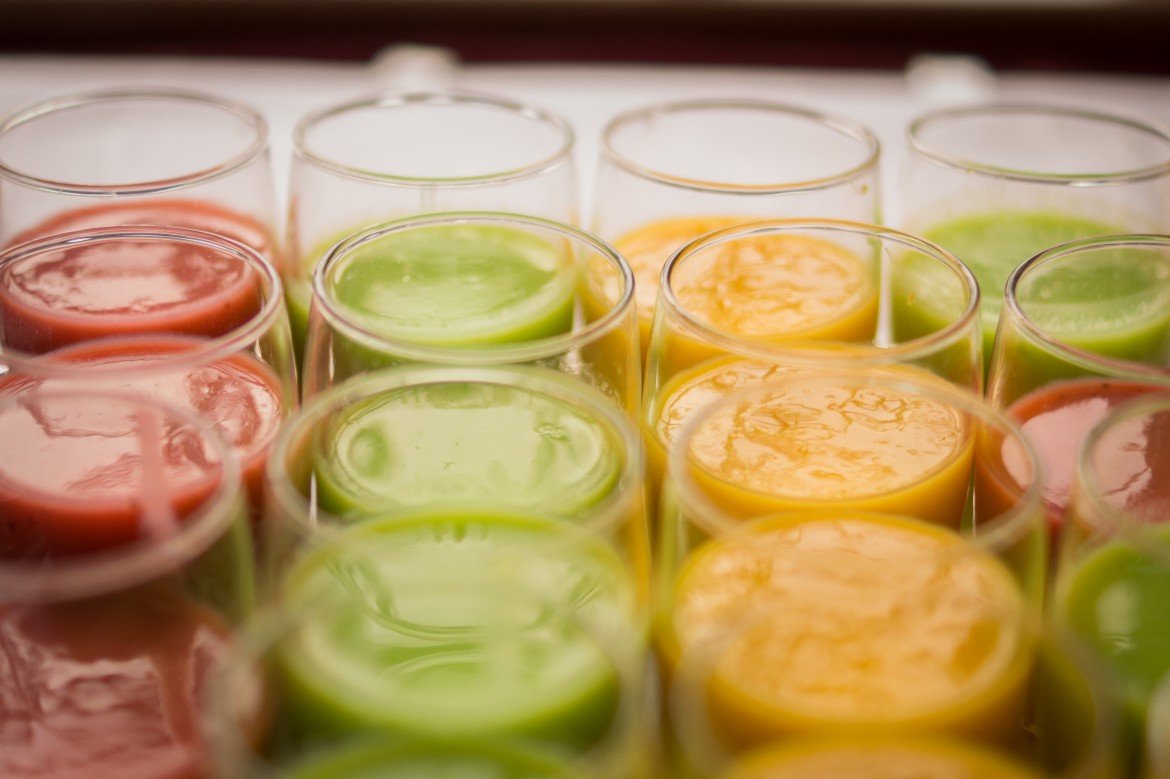How often do you juice? If the answer is never, or not often enough, you should really reconsider it.
Why? Because numerous studies have indicated the potential health benefits of juicing various fruits and vegetables, some of which could likely improve your health as well.
In fact, since you’re reading this, you probably are seeking out an effective natural way to reduce your cholesterol levels. Well search no more, as you will soon see the marvelous ways juicing can reduce your cholesterol levels.
How Can Juicing Reduce Cholesterol Levels?
To understand how juicing can help to reduce cholesterol levels, first you must have a basic understanding of what goes into juice. For one, your selection of fruits or vegetables is the most important part of reaping the health benefits.
Some may be more efficient at reducing your risk of cancer, or boosting your immune system, while others are better suited for reducing cholesterol. More on than in a bit.
There are a few basic ways juices help to reduce cholesterol levels:
Juices Are Typically High In Fiber – you may be a little confused when you heard that juices contain high amounts of fiber, and you’re not totally wrong. However, what ensures you get lots of the fiber out of the nutritious fruits or veggies is the type of juicer you have. Centrifugal juicers supply the least fiber, since most of the pulp is discarded, or separated.
Masticating juicers, on the other hand, crush the fibrous pulp up, resulting in reduced wastage, and a thicker juice. The preservation of the fiber is important, since it is this exact fiber that reduced cholesterol levels.
Certain fiber types are able to bind to bile produced by the liver. Bile is important in emulsifying fat, but is normally “recycled” to be used again. However, fiber can bind to these bile salts, and promote their elimination in stool. The result? No recycling of this important digestive juice, but rather production all over from scratch, using cholesterol stores as the raw material.
What you are left with is a depleted cholesterol supply. Of course, frequency of juicing and paying attention to your levels is also important.
Certain Juices Can Restrict Absorption of Fat Into Circulation – another major way to reduce cholesterol levels is to limit the amount of it made available for absorption! Many fruits and vegetables contain compounds known as plant sterols, which can be considered plant based cholesterol. These sterols actively compete with cholesterol for absorption, resulting in much of it being excreted unabsorbed.
Reducing Oxidation – one of the major issues associated with high cholesterol levels is when it oxidizes. Oxidized cholesterol attaches itself conveniently unto blood cell walls, and before you know it, a large occlusion has developed that all but restricts blood flow. Thus is the genesis of heart disease stroke and heart attacks. Juicing fruits and vegetables can significantly slow down or restrict oxidation of cholesterol, preventing deposits forming on your blood vessels.
What Are The Best Fruits And veggies To Juice To Reduce Cholesterol Levels?
When choosing fruits or veggies to juice, consider the ones that will deliver the biggest bang for the buck, or in this case most likely to reduce your cholesterol.
Popular options include:
Cruciferous Vegetables – these include Broccoli, Kale, Cabbage, and Cauliflower. These are well known for this ability to promote the excretion of bile acids, the mechanism described above.
Foods Rich In Plant Sterols – popular choices include apples, tomatoes, and blueberries.
Anti-Oxidants – you’re in luck! By far the majority of fruits and vegetables are loaded with anti-oxidants. Therefore, this is your opportunity to mix it up.
Looking for sweeter options? Add some pineapple or berries. Be sure to use common sense too, and choose those that you know are rich on
Conclusion
Juicing offers an excellent way for you to not only receive loads of cholesterol reducing benefits, but to also reach your daily intake of fruits or vegetables. Drinking them is far less painful than eating, if you find yourself struggling to consume nature’s best on a daily basis.

